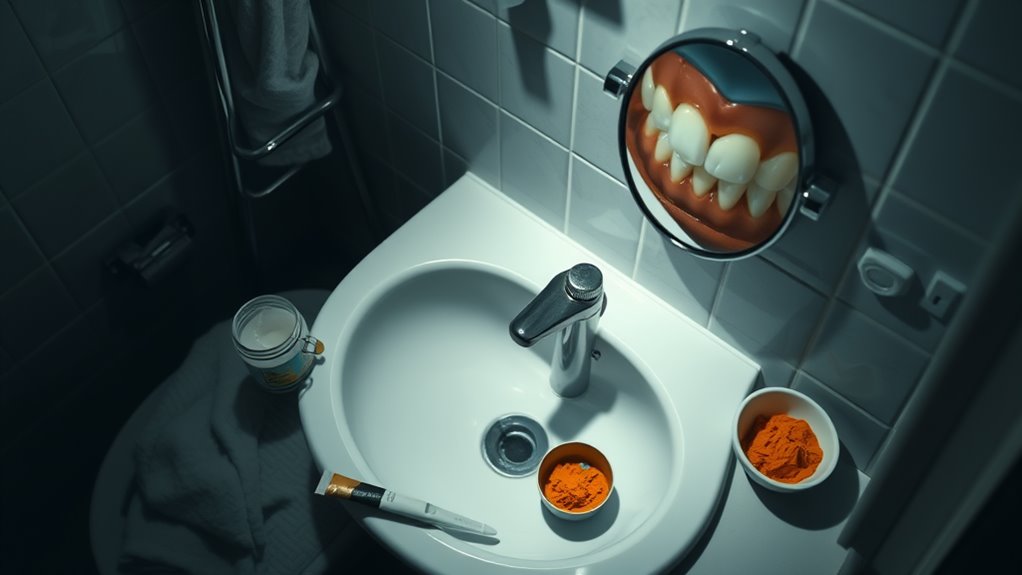What Your Toothache Is Telling You About Your Health!
When you experience a toothache, it’s more than just a dental nuisance. That pain could be your body’s way of signaling deeper health issues. Whether it’s a sharp sting or a dull throb, each type of discomfort might point to specific problems. Ignoring these signals could lead to more serious consequences. So, what exactly could your toothache reveal about your overall health? Let’s explore the connections.
Understanding the Types of Tooth Pain
When you experience tooth pain, understanding its type can help you pinpoint the problem. Toothaches can manifest in various ways, each signaling something different about your oral health.
Sharp, shooting pain might indicate nerve issues, while a dull, constant ache could suggest decay or infection. You might also feel sensitivity to hot or cold, a clear toothache health warning that something isn’t right. Early recognition of warning signs matters because it can guide you in seeking the right care. You’re not alone in this; many people face similar discomforts and share your concerns.
By identifying your pain type, you can communicate effectively with your dentist, fostering a sense of belonging in your community of oral health seekers. So, pay attention to your body’s signals; they’re your first step toward healing and maintaining a vibrant smile.
Common Causes of Toothaches
Toothaches can stem from several common causes that often signal underlying issues. You might experience pain from cavities, which occur when bacteria erode your tooth enamel. Gum disease is another culprit that can lead to inflammation and discomfort. If you’ve recently had dental work, it’s normal to feel some sensitivity as your teeth adjust. Additionally, grinding your teeth, known as bruxism, can cause significant pain and wear down enamel.
Here’s a quick overview of some causes:
| Cause | Description | Symptoms |
|---|---|---|
| Cavities | Decay from bacteria | Sharp pain, sensitivity |
| Gum Disease | Infection of gum tissue | Swollen gums, bleeding |
| Tooth Sensitivity | Reaction to temperature or sweets | Sharp pain |
| Bruxism | Grinding teeth | Dull ache, soreness |
| Dental Work | Recent procedures | Temporary sensitivity |
Identifying the cause of your toothache is crucial for maintaining your oral health. Persistent pain could indicate a more serious dental issue that requires professional evaluation.
Tooth Pain and Oral Health Issues
Ignoring tooth pain can lead to more serious oral health issues. When you feel discomfort, it’s your body’s way of signaling that something’s not right. You might be dealing with cavities, gum disease, or even an infection. If you brush it off, these problems can escalate, causing more pain and potential tooth loss.
Taking care of your teeth isn’t just about having a bright smile; it’s about maintaining your overall well-being. Regular dental check-ups can help catch issues early, ensuring you stay healthy and pain-free. Furthermore, addressing gum disease can significantly impact your heart health and overall wellness.
You’re not alone in this—many people share similar experiences, and by addressing tooth pain promptly, you’re part of a community that values health and connection. So, don’t hesitate. Reach out to your dentist if you’re feeling discomfort. You deserve to feel good, and your smile deserves the best care possible!
Systemic Conditions Linked to Tooth Pain
Although many people associate tooth pain solely with dental issues, it can also indicate underlying systemic conditions. If you’re experiencing persistent toothache, it might be time to pay attention. Conditions like diabetes can lead to gum disease, which often manifests as tooth pain.
Similarly, heart disease may present itself through discomfort in your teeth or jaw, signaling that something more serious is at play. You shouldn’t ignore these signs, as they could mean your body’s trying to tell you something important.
Autoimmune disorders, for example, can cause inflammation that affects your oral health, leading to discomfort. Even stress can contribute to tooth pain through teeth grinding or clenching. Additionally, neglecting oral hygiene can increase the risk of systemic diseases, making it essential to maintain good dental care.
When to Seek Professional Help
When should you consider seeking professional help for that nagging toothache? If your pain lasts more than a day or two, it’s time to reach out to a dentist. You shouldn’t ignore persistent discomfort, especially if it’s accompanied by swelling, fever, or difficulty swallowing.
These symptoms might indicate a more serious issue that needs immediate attention. If over-the-counter pain relief isn’t working, don’t hesitate to schedule an appointment. Additionally, dental infections can escalate quickly, leading to severe discomfort and potentially affecting your overall health.
Remember, dental health is crucial to your overall well-being, and you’re not alone in seeking help. Many people experience tooth pain, and professionals are here to guide you through it.
Trust your instincts—if something feels off, it probably is. Finding the right support can make a world of difference.
Your health matters, and getting the care you need is a step toward feeling better and being part of a healthier community.
Prevention and Maintenance for Healthy Teeth
To maintain healthy teeth, it’s essential to incorporate good habits into your daily routine. By doing so, you’ll not only keep your smile bright but also foster a sense of belonging to a community that values health. Here’s a quick guide to help you stay on track:
| Healthy Habit | Why It’s Important |
|---|---|
| Brush twice a day | Removes plaque and prevents decay |
| Floss daily | Cleans between teeth, reducing gum disease |
| Limit sugary snacks | Reduces risk of cavities |
| Regular dental check-ups | Catches problems early |
| Drink plenty of water | Keeps your mouth hydrated and washes away food particles |




